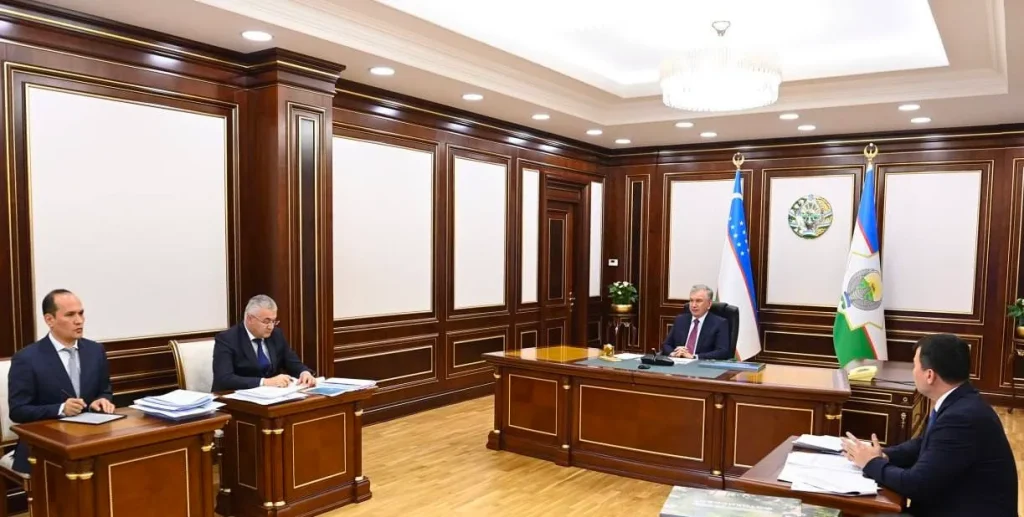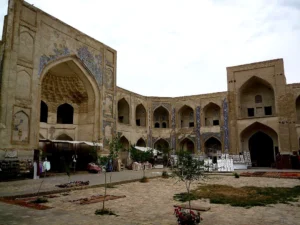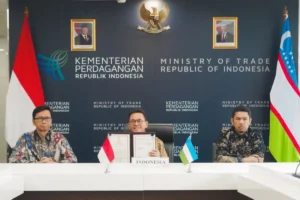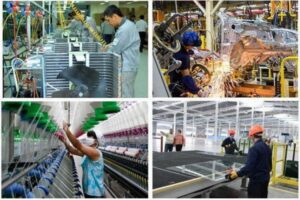President Mirziyoyev Spearheads Efforts to Adapt Uzbekistan’s Agriculture to Climate Change

Tashkent, The Gulf Observer: In a proactive move to address the pressing challenges posed by climate change on Uzbekistan’s agricultural landscape, President Shavkat Mirziyoyev has engaged in comprehensive deliberations on proposals aimed at fostering resilience and sustainability within the sector. Media reports confirm that President Mirziyoyev has meticulously examined strategies to enhance land utilization efficiency and foster scientific advancements within the industry.
Highlighting the urgency of the situation, the press service of the President disclosed alarming statistics, indicating that approximately 3 million hectares of pastures and agricultural land in Uzbekistan have undergone degradation, with an additional 2 million hectares suffering from varying degrees of salinization. Foreign experts have sounded a clarion call, warning that by 2030, the region’s water resources could plummet by nearly 6 percent due to the adverse impacts of climate change. In response, decisive action is imperative.
In a proactive stance, a robust national program comprising 52 comprehensive paragraphs has been meticulously crafted to address the challenges posed by climate change and mitigate its adverse effects on agriculture. This program is anticipated to mobilize substantial resources, with expectations to attract over $294 million in grant funds.
Central to the program’s objectives is the restoration and enhancement of agroecological landscapes and degraded pastures, particularly in the Aral Sea region. Ambitious plans include the establishment of protective forest belts across strategic regions, such as the Republic of Karakalpakstan and the Khorezm, Bukhara, and Kashkadarya regions. Additionally, in areas grappling with water scarcity, the cultivation of resilient crops such as licorice, rose hips, sesame, and brine shrimp will be promoted.
To bolster scientific understanding and forecasting capabilities related to climate change, a dedicated center will be established, alongside the installation of agrometeorological stations in five key regions. Collaborative efforts with Italy will see the inception of the International Center for Intensive Seed and Nursery Growing, aimed at cultivating drought and salinity-resistant plant varieties.
Recognizing the paramount importance of water conservation, targeted measures will be implemented, including subsidies for laser leveling lands in Karakalpakstan. Subsidies for grain and rice producers covering up to 100 percent of fuel and lubricant costs for land laser leveling are slated for implementation, with initial focus on the Turtkul, Beruniy, and Amudarya districts.
Further initiatives encompass the rejuvenation of land plots at prominent research institutions, such as the Institute of Horticulture, Viticulture, and Winemaking. Modern water-saving technologies will be deployed, and the cultivation of export-oriented fruits and grapes will be prioritized.
Efforts to enhance the efficiency of greenhouse farming will be underscored by subsidies covering foreign expert consultancy fees and partial costs of purchasing coal boilers. Moreover, President Mirziyoyev has underscored the imperative of advancing scientific research within the industry, culminating in the establishment of the Research Institute of Fiber Crops.
President Mirziyoyev has issued directives to meticulously refine proposals, ensuring the precise targeting and efficacy of measures undertaken. With unwavering resolve, Uzbekistan strides forward in its quest to fortify its agricultural sector against the ravages of climate change, under the visionary leadership of President Shavkat Mirziyoyev.


